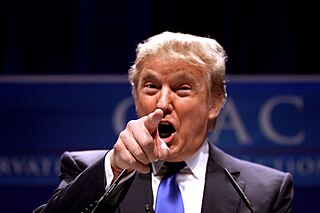
by Kathie MM
Trying to make sense out of human behavior, figuring out what makes people tick, is not just a concern of psychologists and social scientists. It seems to be a pretty widespread human desire. Moreover, given mankind’s long history of inhumanity to fellow humans, and the risks of such behaviors pretty much destroying all of us in this nuclear age, understanding that propensity to inhumane behavior becomes crucially important.
One way of understanding the differences between people who seem to endorse and promote inhumane behavior and people who risk personal safety to help rescue others from violence and cruelty is provided by theories of moral disengagement and engagement, often discussed on this blog—e.g., here, and here, and here .
In this brief new series on moral disengagement and engagement, I offer examples of major types of moral disengagement and contrasting examples of the corollary forms of moral engagement, using excerpts from speeches of two well-known contemporary politicians. My goal is not to get you to label one speaker as a monster and one as a model of perfection, but to consider the potential implications of the different ways of thinking they are promoting.
Examples of morally disengaged versus morally engaged ways of thinking and arguing
Moral disengagement: Pseudomoral justifications: “When Iran, when they circle our beautiful destroyers with their little boats, and they make gestures at our people that they shouldn’t be allowed to make, they will be shot out of the water.”
Moral engagement: Principled moral reasoning: [One] of my favorite passages of scripture is, ‘in as much as ye have done it unto one of the least of these my brethren, ye have done it unto me.’ Matthew 25:40…. The passage teaches about God in each of us, that we are bound to each other and called to act. Not to sit, not to wait, but to act—all of us together.
******
Moral disengagement: Euphemistic language: “The other thing with the terrorists is you have to take out their families, when you get these terrorists, you have to take out their families. They care about their lives, don’t kid yourself. When they say they don’t care about their lives, you have to take out their families.”
Moral engagement: Realistic language/ Telling it like it is: Arizona’s SB 1070 [immigration law] is a stupid law — it is stupid, it is racist, it is unconstitutional and it should be struck down…Let’s say it loud and clear to the Republicans: If you truly want to do something about immigration, then get out of the way, get on the right side of history and let us pass comprehensive immigration reform.”
***
Moral disengagement: Misrepresenting, minimizing, or denying the consequences of one’s violence: “I know more about ISIS than the generals do, believe me… I would bomb the sh**t out of them.”
Moral engagement: Addressing consequences: The system is rigged….Oil companies guzzle down billions in subsidies. Billionaires pay lower tax rates than their secretaries. Wall Street CEOs—the same ones who wrecked our economy and destroyed millions of jobs—still strut around Congress, no shame, demanding favors, and acting like we should thank them.
Pretend you are a neutral observer in another country listening to this rhetoric in English. What are your thoughts about the different ways listeners might be influenced by these arguments?
****
To be continued.



